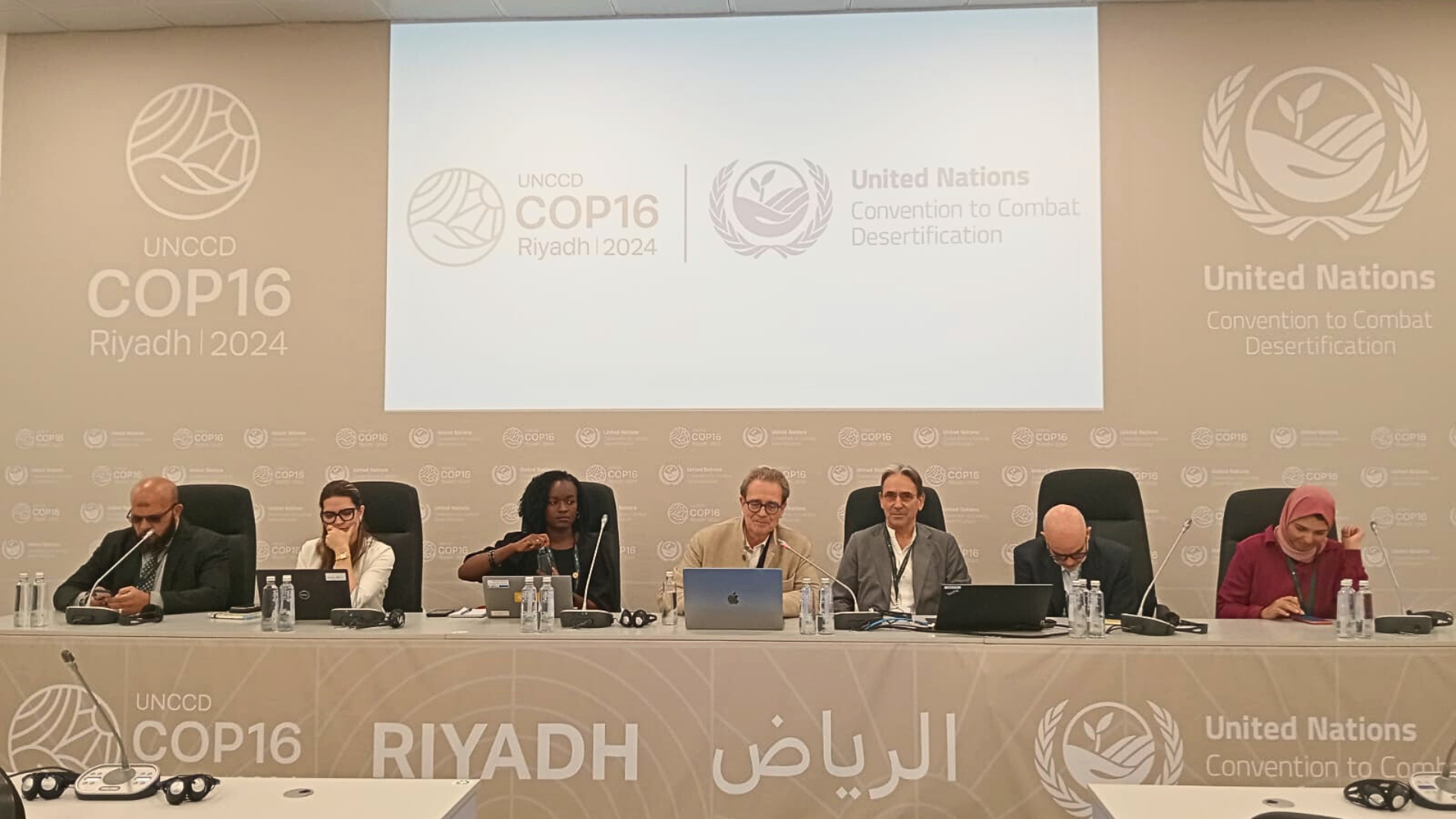We are excited to actively participate in UNCCD COP16 in Riyadh – taking place from 2 to 13 December – alongside Future Economy Forum and NOW Partners and in collaboration with Heliopolis University and the Egyptian Biodynamic Association (EBDA). Our team is on the ground to emphasize the vital importance of organic and biodynamic agriculture in reclaiming desert land. This initiative serves as a strategic approach to combat climate change, restore biodiversity, minimize water waste and promote a sustainable future. Our delegation will facilitate discussions surrounding SEKEM’s ongoing initiative, “Greening the Desert,” which aims to regenerate 50,000 hectares of desert land in Al Wahat El-Bahariya Oasis. Additionally, they will engage in sessions addressing critical issues such as water security, rural community engagement, carbon sequestration, and land rehabilitation.
Greening the Desert Project
In 2020, we launched the Greening the Desert Project in Al Wahat El-Bahariya Oasis with the goal of regenerating 50,000 hectares of desert land through sustainable practices such as organic and biodynamic farming. To date, we successfully rehabilitated over 7,000 hectares, significantly enhancing soil fertility and ecological balance. A central focus of this initiative is the application of innovative research methods aimed at optimizing water efficiency in agriculture. This includes the development of drought-resistant crop varieties, the implementation of irrigation water recycling, and the adoption of sub-surface and night irrigation techniques. Additionally, a tree-planting campaign has successfully resulted in the planting of 600,000 trees, which not only contributes to CO2 compensation but also enhances biodiversity through biodynamic practices.
Furthermore, our delegation will present our Joint Call to Action, titled “Agriculture is part of the Solution: A Joint Call for Organic and Climate Positive Agriculture,” which was launched earlier at COP29. This collaborative effort involves SEKEM, EBDA, Heliopolis University, and the Carbon Footprint Center. It proposes a framework for agricultural carbon credit schemes that comply with specific standards. This framework enables farmers to trade validated and verified carbon credits on the national and international Voluntary Carbon Market (VCM), with proceeds directed toward improving farmers’ livelihoods and transitioning to climate-friendly practices.
What does this mean for us?
Commenting on SEKEM’s participation at UNCCD COP16, Helmy Abouleish, CEO of SEKEM Group, said: “I am thrilled to represent SEKEM at COP16 in Riyadh, where we will highlight crucial strategies for combating desertification and promoting sustainable land reclamation. In Egypt, desert regions account for nearly 95% of the total land area. By implementing regenerative agricultural practices—including organic and biodynamic farming—we will not only reclaim arid lands but also conserve water efficiently, restore biodiversity, mitigate climate change, and enhance food security. Our “Economy of Love” model embodies a holistic approach that improves farmers’ livelihoods while simultaneously increasing carbon sequestration through initiatives such as afforestation projects, composting, soil carbon management, and the use of renewable energy on certified farms. At SEKEM, we aspire to share this model with other countries facing similar challenges, transforming barren landscapes into thriving green valleys.”
Our Commitment to Climate Action
SEKEM has been instrumental in advancing climate action at COP27, COP28, and COP29 by championing biodynamic agricultural practices. At COP29, we partnered with Heliopolis University, EBDA, and the Carbon Footprint Center to launch a Joint Call aimed at creating a framework for agricultural carbon credit schemes that adhere to rigorous standards. This initiative emphasizes the critical role of regenerative agriculture in achieving climate objectives. Furthermore, our delegation organized impactful sessions focused on transformative agricultural solutions and advocated for policies that streamline access to carbon credits.

